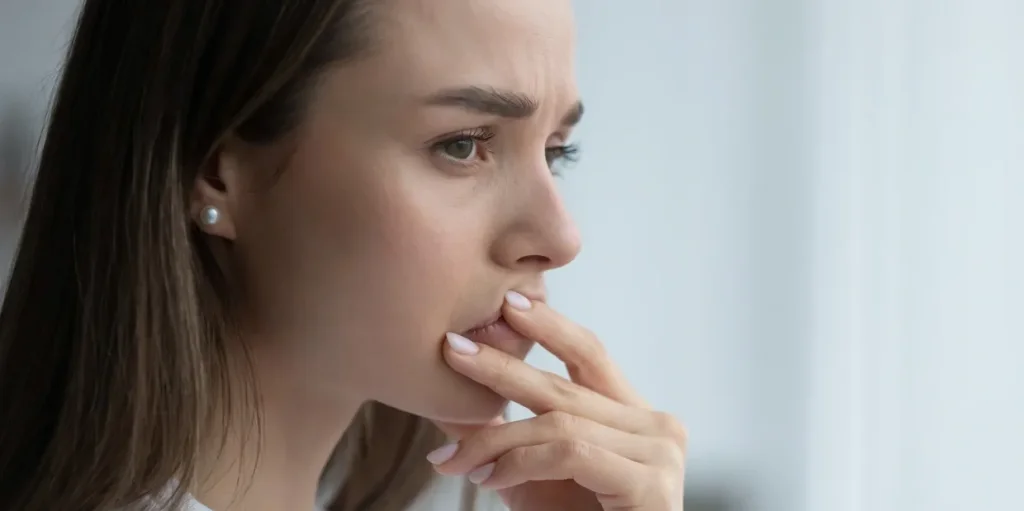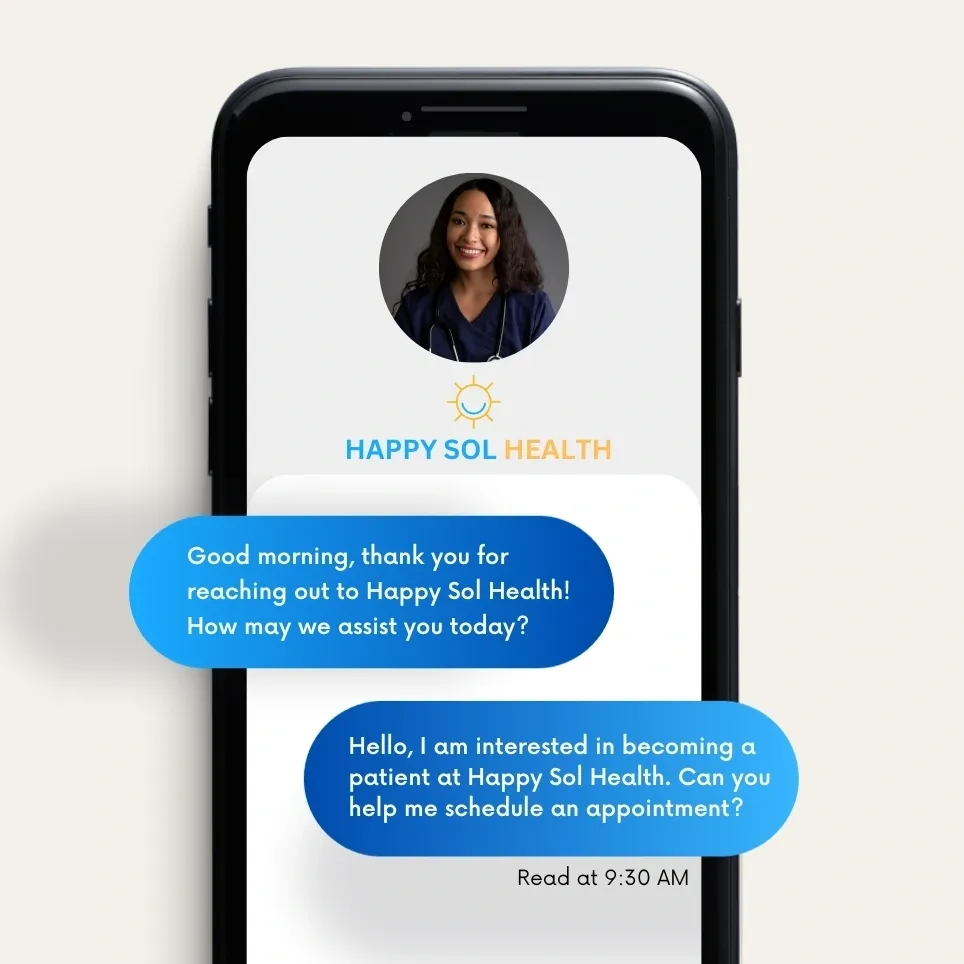What are Anxiety disorders?
Anxiety disorders refer to a group of psychiatric conditions characterized by excessive and persistent feelings of fear, worry, and apprehension. These disorders are associated with various physical and psychological symptoms that significantly impair a person’s daily functioning and quality of life. The Diagnostic and Statistical Manual of Mental Disorders (DSM-5) identifies several specific anxiety disorders, including generalized anxiety disorder (GAD), panic disorder, social anxiety disorder (SAD), specific phobias, and separation anxiety disorder, among others.
The underlying causes of anxiety disorders can involve a combination of genetic, environmental, and neurobiological factors. Dysregulation of neurotransmitters, such as serotonin, norepinephrine, and gamma-aminobutyric acid (GABA), has been implicated in the development and maintenance of anxiety disorders.

- Medication Management
- In-person and Virtual appointments are available
- FDA Approved treatment options
- Great support staff that is here to help
Anxiety can be upsetting, some people might feel less worried and stressed after a couple of months of treatment, and for others, it may take longer to feel better.
What are anxiety symptoms?
- Generalized anxiety disorder
- Panic disorder
- Social Anxiety disorder
- Phobias
You feel worried and stressed about many everyday events and activities. This goes on for several months and disrupts your life on most days.
Symptoms may include:
- Feeling worried and stressed about many things almost every day.
- Feeling tired or irritable. You may have a hard time concentrating.
- Having headaches or muscle aches.
- Having a hard time getting to sleep or staying asleep.
You may have repeated panic attacks when there is no reason for feeling afraid. You may change your daily activities because you worry that you will have another attack.
Symptoms may include:
- Intense fear, terror, or anxiety
- Trouble breathing or very fast breathing
- Chest pain or tightness
- A heartbeat that races or is not regular
You feel very anxious about what you will say or do in front of people. For example, you may be scared to talk or eat in public. This problem affects your daily life.
Symptoms may include:
- Fear about a social situation, such as eating in front of others or speaking in public, you may worry a lot or you may be afraid that something bad will happen
- Anxiety that can cause you to blush, sweat, and feel shaky
- A heartbeat that is faster than normal
- A hard time focusing
You are very scared of a specific object, situation, or activity. For example, you may fear spiders, high places, or small spaces.
Symptoms may include:
- More fear than most people of being around an object, being in a situation or doing an activity. You might also be stressed about the chance of being around the thing you fear.
- Worry about losing control, panicking, fainting, or having physical symptoms like a faster heartbeat when you are around the situation or object.


How is anxiety diagnosed?
Your doctor also may ask about other symptoms, like whether you:
Feel restless.
Feel tired.
Have a hard time thinking or feel that your mind goes blank.
Feel cranky.
Have tense muscles.
Have sleep problems.
A physical exam and tests can help make sure that your symptoms aren’t caused by a different condition, such as a thyroid problem.
How are anxiety symptoms treated?

Medicines may include
- Antidepressants (SSRIs and SNRIs):
- Benzodiazepines:

Antidepressants are a class of medications used to treat major depressive disorder and anxiety disorders. These may help your symptoms by keeping chemicals in your brain in balance.
- Fluoxetine (Prozac Weekly, Prozac, Sarafem)
- Citalopram (Celexa)
- Sertraline (Zoloft)
- Buspirone (BuSpar)
- Paroxetine (Paxil, Pexeva, Paxil CR)
- Escitalopram (Lexapro)

These may give you short-term relief of your symptoms.
Some people use cognitive-behavioral therapy. A therapist helps you learn to change stressful or bad thoughts into helpful thoughts.
- Alprazolam (Xanax)
- Chlordiazepoxide (Librium)
- Clonazepam (Klonopin)
- Diazepam (Valium)
- Flurazepam (Dalmane)
- Lorazepam (Ativan)
Follow-up care is a key part of your treatment and safety.
Be sure to make and go to all appointments, and call your doctor if you are having problems. It’s also a good idea to know your test results and keep a list of the medicines you take.

Experience Exceptional Care at Happy Sol Health
Our Mental health professionals are committed to providing personalized care and innovative treatments to ensure you receive the best possible outcome.
